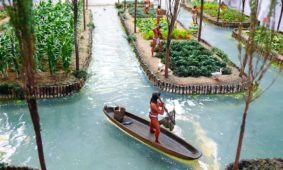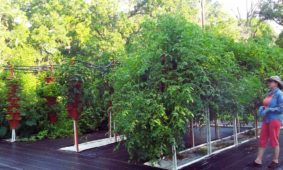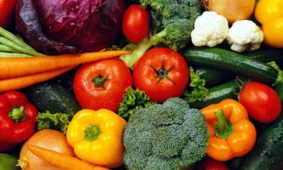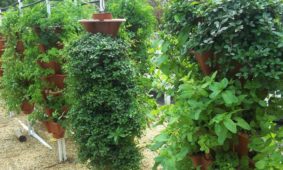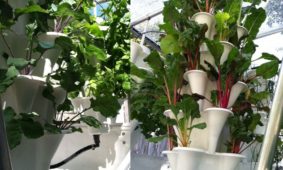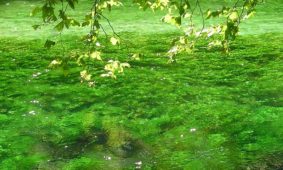What is Aquaculture
There are a few different ways to classify hydroponic systems, and one way is to determine where in the world the nutrients come from. The category, “Nutrient Derivations” includes three sources of nutrients that may be used in a hydroponic system: Hydroponic, Bioponic & Aquaculture. Remember that the term Hydroponic is used to describe all […]
READ ARTICLEThe Foundation of Hydroponics
Category 1: Class of Hydroponics Agroponics Aeroponics Aquaponics Category 2: Nutrient Derivations Hydroponic Bioponic Aquaculture Category 3: Types of Hydroponic Systems: Open/Closed High Density Vertical (HDV) Vertical Nutrient Film Technique (NFT) Deep Water Culture (DWC) Ebb and Flow Drip There is some controversy over the way to classify hydroponic systems. The purpose of this article […]
READ ARTICLEAztec chinampas of Central America
An example of hydroponic principles that were being used successfully is that of the Aztecs of Central America. A nomadic tribe, they were driven onto the marshy shore of Lake Tenochtitlan, located in the great central valley of what is now Mexico. Roughly treated by their more powerful neighbors, denied any arable land, the Aztecs […]
READ ARTICLEAn overview of Hydroponics
Definition of Hydroponics Hydroponics is actually the science of growing plants without soil. Rather than soil, plants are grown in solutions containing each of the necessary minerals and elements. Methods utilized to get the nutrients to the roots, combined with the needed oxygen, include bare-root systems and systems using inert substrates to support the growth […]
READ ARTICLEMidsummer Night Meadows, Backyard Garden
Summer in Central Texas is once again in full swing, and it is flaunting its lush growth potential beautifully on Larry and Brenda Johnson’s rural property in their EzGro Backyard Garden, Midsummer Night Meadows. Larry Johnson, the founder and developer of the EzGro High Density Vertical Gardening System, constructed this 30- tower system in 2010, […]
READ ARTICLEImproving Flavor In Your Garden – Treat ‘Em Bad And They’ll Taste Better
Dr. Morgan shares some secrets for amping up the flavors in your hydroponic crops. When it comes to good food, we are all looking for taste, aroma and texture. Sometimes these all come together to create a sensory delight, but when it comes to fruit, vegetables and herbs, appearances can certainly be deceiving. Those huge, […]
READ ARTICLEEfficient And Economical Food Production Systems
With the recent price increases in food, especially fresh fruits and vegetables, there is a real challenge to feed a family with the 5-a-day produce and fruit menu. Fresh vegetables and fresh fruits are the key to good health. This is not a new or profound statement but a fact. We are just realizing the […]
READ ARTICLEMiami Science Museum Uses EzGro
The Museum is making preparations to grow and harvest edible crops on the property again. Two different types of hydroponic systems will be explored at the Museum, one using a series of planters in the Wildlife Center (supported by the Batchelor Foundation), and the other a Vertically Integrated Greenhouse (VIG) in the Sea Lab – […]
READ ARTICLEHydroponics First Recorded Scientific Experiments
Some three centuries ago, john Woodward, an English scientist and a fellow of the Royal Society, undertook the first recorded scientific experiments on the subject of plant nutrition. He wanted to know whether plants drew nourishment from the soil or from water. Woodward discovered that adding small amounts of soil to the water in which […]
READ ARTICLEOrganic Farming vs Hydroponics
“Go organic” has become the battle-cry of thousands of Americans who assume that food items labeled “organic” is automatically a better, healthier product. Is this really true? Both organic farming and hydroponic farming embrace a desire to protect our planet’s fragile environment. Both methods steer clear of harmful chemical fertilizers and pesticides. Both seek to […]
READ ARTICLEThe History of Hydroponics
Hydroponics basically means working water (“hydro” means “water” and “ponos” means “labor”). Many different civilizations have utilized hydroponic growing techniques throughout history. As noted in Hydroponic Food Production (Fifth Edition, Woodbridge Press, 1997, page 23) by Howard M. Resh: “The hanging gardens of Babylon, the floating gardens of the Aztecs of Mexico and those of […]
READ ARTICLE






